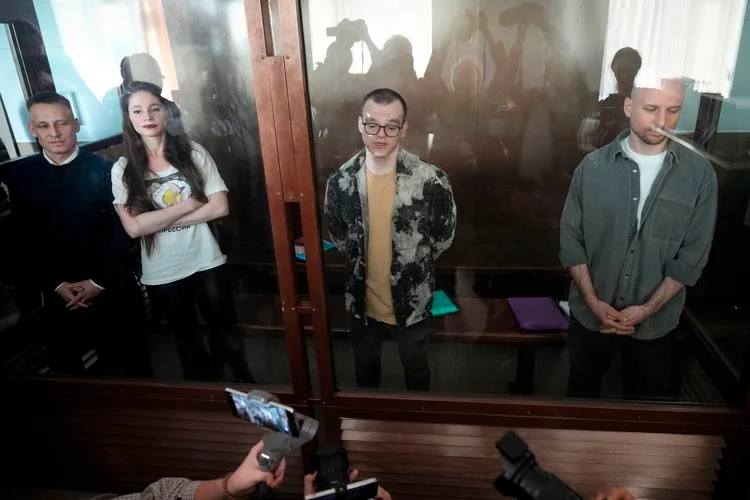
Russia is checking four journalists behind closed doors for ties to the Navalny team
Four Russian journalists were put on trial in Moscow on Wednesday on charges of being part of a “extremist” group. They were accused by the government of working for Alexei Navalny’s banned organization, which was against the law.
The trials of Antonina Favorskaya, Sergei Karelin, Konstantin Gabov, and Artem Kriger show how dangerous it is to be a writer in Russia, where dozens are currently in jail, according to press freedom groups.
The judge let the prosecution ask to keep the press and spectators out of the courtroom for the rest of the trial after about 30 minutes of open hearings. This was based on a letter from the interior ministry’s counter-extremism department saying that Navalny supporters were planning “provocations.”
According to Mediazona, Kriger told the judge, “This is just some kind of archaism,” before the reporters were told to leave the room. What totalitarian governments do is similar to this.
If they are found guilty, each of the reporters could spend up to six years in jail. When the case was open to the press, they were not asked to say whether they were innocent or guilty.
They are accused of making content for Navalny’s Anti-Corruption Foundation (FBK) YouTube page, which is not allowed in Russia because it is “a foreign agent” and an extremist group.
Gabov and Karelin are both independent journalists who have worked for Reuters and The Associated Press, among others. A Reuters representative said Gabov had worked as a desk producer for the news service from late 2022 to early 2024.
“The charges against him have nothing to do with the freelance work he did for Reuters,” they said. A Reuters spokesperson said, “Reuters is strongly committed to freedom of the press and does not support the arrest or detention of any journalist for reasons related to their work.”
“Journalists must be free to report the news in the public interest without fear of harassment or harm, wherever they are.”
The AP was very worried about Karelin’s detention when he was arrested in April. It did not answer right away when asked for more information on Wednesday.
Favorskaya and Kriger both work for SOTAVision, which is a news organization that is not part of any government and has been labeled a foreign agent. The last video Favorskaya took of Navalny was at a court hearing on February 15, the day before he died suddenly in a prison cell in the Arctic. Krager was caught in June, and she was caught in March.
Since it started its war in Ukraine, Russia has put more pressure on reporters in Russia and other countries. International press freedom group Reporters without Borders says that 34 journalists and six other media workers are being held in Russia right now.
According to Russian law, it is up to the courts to implement Russian law, not the Kremlin. It has made people who back Navalny look like they are trying to cause trouble and make Russia less stable.
All Categories
Recent Posts
Tags
+13162306000
zoneyetu@yahoo.com



